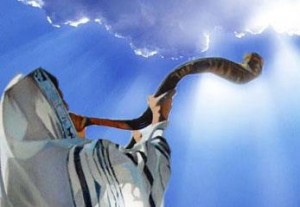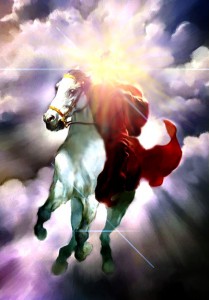What is Yom Kippur?
Yom Kippur (the Day of Atonement)
26 The Lord said to Moses, 27 “The tenth day of this seventh month is the Day of Atonement. Hold a sacred assembly and deny yourselves, and present a food offering to the Lord. 28 Do not do any work on that day, because it is the Day of Atonement, when atonement is made for you before the Lord your God.
29 Those who do not deny themselves on that day must be cut off from their people. 30 I will destroy from among their people anyone who does any work on that day. 31 You shall do no work at all. This is to be a lasting ordinance for the generations to come, wherever you live.
32 It is a day of sabbath rest for you, and you must deny yourselves. From the evening of the ninth day of the month until the following evening you are to observe your sabbath.” (Leviticus 23: 26-32)
Also known as the Day of Awe, Yom Kippur is the holiest day of the Jewish calendar. This is one of three Biblically-mandated holidays requiring pilgrimage to Jerusalem. No work is permitted on this day. (Leviticus 23: 27)
According to Jewish tradition, Yom Kippur is the only day that sins against God can be forgiven. It is a day of repentance. It is a time for seeking forgiveness and reconciliation with God. Jews believe this to be the day in which God decides the fate of every human being (i.e. who will live and who will die in the upcoming year).
This is the day when the books in heaven are opened and God determines who gets their name written in the Book of Life and who doesn’t. This day represents an attempt to appeal the judgment, to demonstrate repentance, and to make amends.
This God-mandated holiday requires a pilgrimage to Jerusalem. It is also the only mandated time of fasting (a 25 hour fast). A solemn but happy day (thanks to being reconciled with God), the fast ends with a festive banquet.
The day ends with one long, final trumpet blast from a shofar (a ram’s horn) to signal the triumph of Israel over their sins and the hope for the coming of the messiah.
Upcoming dates: Oct 12 2016, Sep 30 2017, Sep 19 2018, Oct 9 2019, Sep 28 2020, Sep 16 2021, Oct 5, 2022, Sept 25, 2023
Scriptures Read on this Day
Torah reading: Leviticus 16:1 – 16:34, Numbers 29: 7-11
Haftarah: Isaiah 57:14 – 58:14, Jonah 1: 1 – 4: 11, Micah 7: 18-20
The First Shofar
Genesis 22 tells of the time that God tested Abraham by asking Abraham to sacrifice His son Isaac on Mount Mariah. Abraham was obedient to God and was about to sacrifice his son but at the last moment, God sent and angel to stop Abraham from sacrificing Isaac. God provided a ram to be sacrificed in place of Abraham’s son Isaac.
According to legend, one horn from the ram of the Akedah (the binding of Isaac) was sounded at Mount Sinai (when Moses received God’s commandments) and the other will be sounded when messiah comes.
7 Isaac spoke up and said to his father Abraham, “Father?” “Yes, my son?” Abraham replied. “The fire and wood are here,” Isaac said, “but where is the lamb for the burnt offering?” 8 Abraham answered, “God himself will provide the lamb for the burnt offering, my son.” (Genesis 22: 7-8)
15 The angel of the Lord called to Abraham from heaven a second time 16 and said, “I swear by myself, declares the Lord, that because you have done this and have not withheld your son, your only son, 17 I will surely bless you and make your descendants as numerous as the stars in the sky and as the sand on the seashore. Your descendants will take possession of the cities of their enemies, 18 and through your offspring all nations on earth will be blessed, because you have obeyed me.” (Genesis 22: 15-18)
God tested Abraham to see if he was willing to do for God what God was willing to do for him. Because Abraham was faithful, God made a covenant with Abraham. Just as God provided a ram to be sacrificed instead of Abraham’s son, God provided a way to save mankind from their sins. From Abraham and Isaac’s lineage, the Messiah was born. God sacrificed His only Son (the Lamb of God: Jesus Christ) so that we could live.
The Akedah correlates with the sacrifice of the Lamb of God (Jesus Christ) when He died on the cross to pay the sin debt for the world. Yom Kippur correlates with the end times prophesies about the return of Jesus Christ.
The Final Shofar
7 But in the days when the seventh angel is about to sound his trumpet, the mystery of God will be accomplished, just as he announced to his servants the prophets.” (Revelation 10: 7)
15 The seventh angel sounded his trumpet, and there were loud voices in heaven, which said: “The kingdom of the world has become the kingdom of our Lord and of his Messiah, and he will reign for ever and ever.” (Revelation 11: 15)
According to both the Old and New Testament of the Holy Bible, the Jewish Messiah (Jesus Christ) will arrive at the sounding of a trumpet. That is when the kingdom of this world will become the kingdom of our Lord and of his Messiah.
The New Testament states that at the 7th Trumpet, Jesus Christ will arrive and destroy the armies that gathered at Armageddon. At that time, the beast and the Antichrist will be cast into the lake of fire. The False Prophet and those who took the mark of the beast will also be cast into the lake of fire. This is the final portion of the Wrath of God.
When the Jewish Messiah arrives at Armageddon, he will save the remnant of Jewish people. He will establish an eternal kingdom and he will rule with an iron scepter. (Revelation 2: 27) (Revelation 12: 5) (Revelation 19: 15)
Although it is not certain, it appears that this is the event which takes place 1335 days after animal sacrifice is ended and the abomination that causes desolation is set up. (Daniel 12:12).
For more information, please see:
- What is the 6th Seal?
- What is the 7th Seal?
- What are the 7 Golden Bowls?
- What is the 7th trumpet?
- Also read: Revelation 14



Leave a Reply